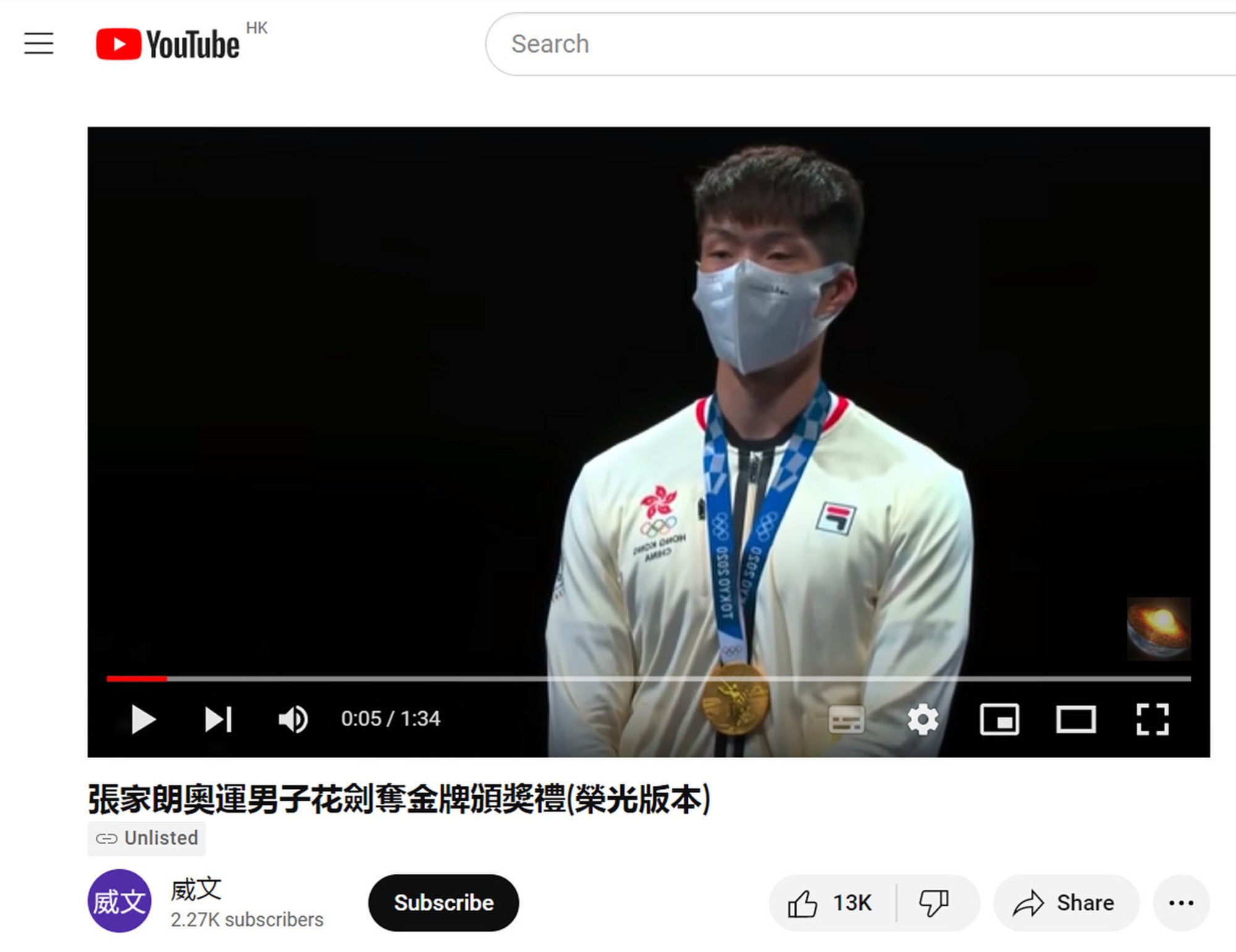
Hong Kong’s first person tried under national anthem law sentenced to 3 months in jail for using protest song in video
- Photographer Cheng Wing-chun earlier found guilty of insulting national anthem by replacing it with ‘Glory to Hong Kong’
- Sentence marks first ruling by a criminal court concerning legality of unofficial anthem of 2019 social unrest
“The defendant’s act not only disrespected the winning athlete, but also fuelled conflicts between people who have different views about the national anthem, and, as a matter of fact, galvanised others into making remarks that similarly undermined the national anthem’s dignity,” she said.

Cheng’s previous clean record and good character carried no mitigation weight given the overwhelming need to deter copycat behaviour and protect the country’s legitimate interests, the magistrate added.
The YouTube clip made it seem like spectators applauded the protest song after it was played during Cheung’s medal presentation, the court said.
It was the first ruling by a criminal court concerning the legality of “Glory to Hong Kong”, which has been used instead of the national anthem at several overseas sports events.
Hong Kong court convicts first person tried under national anthem law
The song, written during the 2019 protests against a now-withdrawn extradition bill, appealed to people to fight for freedom and “Liberate Hong Kong” in a “revolution of our times”.
After his conviction, Cheng told a probation officer he had no knowledge of the meaning or significance of the song when he published the clip.
But Wat found that claim unbelievable and noted Cheng had taken part in various public assemblies in 2019.
Defence counsel Keith Fung Chun-wah urged the court to consider alternative sentencing options, such as a lengthy suspension of a short jail term.
He contended the present case was less serious than other desecrations of the national anthem, such as one that involved mocking the song by replacing its lyrics with gibberish and curses.
The lawyer also pointed to the dozens of spectators in the court’s public gallery as proof Cheng’s prosecution had attracted enough public attention to act as a deterrent.
But Wat warned against underestimating the impact of the offensive clip and noted it had amassed over 90,000 views and more than 900 comments by the time police checked the post last summer.
Hongkongers free to speak up about proposed ban on protest song: justice chief
Although the video could no longer be found using a public search, it remained accessible to those with a direct hyperlink, the magistrate said.
Wat rejected the defence argument that Cheng had merely “silenced” the national anthem and said the court could not take the defendant’s act out of context.
The national anthem, similar to the national flag and emblem, bore unique significance as they symbolised the country’s dignity, reunification and territorial integrity, the magistrate said.
Protection of the national anthem from desecration thus played an important part in safeguarding national interests, she added.
Spotify confirms removal of ‘Glory to Hong Kong’ protest song by distributor
Two others have been sentenced after pleading guilty to insulting the national anthem. The offence is punishable by up to three years imprisonment and a HK$50,000 (US$6,385) fine.
The High Court is expected to hear arguments on Friday for an injunction on the promotion of “Glory to Hong Kong”.
The Hong Kong Journalists Association, the city’s biggest group for reporters, previously expressed concern about members of the industry falling foul of the injunction in carrying out their work.
